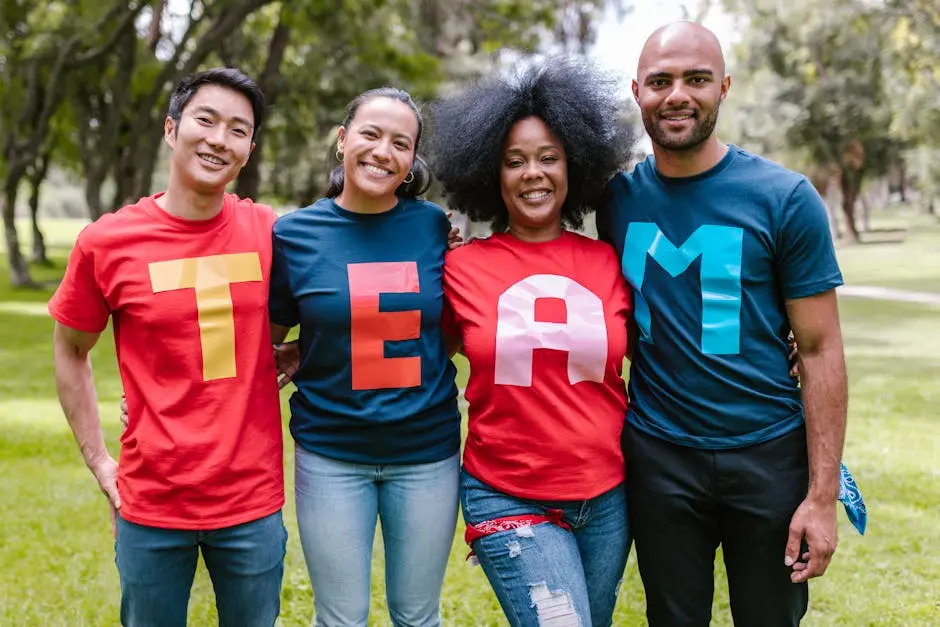This blog explores strategies to improve team motivation, including creating a positive environment, incorporating fun activities, recognising achievements, and setting collaborative goals. These approaches enhance team collaboration, boost morale, and drive success during events and beyond.
Team motivation is crucial to the success of any group event, helping to foster collaboration, positivity, and engagement. In this blog, we’ll explore innovative and enjoyable strategies to inspire your team and enhance motivation during your next event. Whether you’re planning a workshop, conference, or team-building retreat, these tips will ensure your team leaves feeling energised and appreciated.
Understanding the Importance of Team Motivation
Understanding team motivation is essential for the success of any project, as it drives individuals to perform at their best. When team members feel motivated, they are more likely to engage wholeheartedly, contribute ideas, and collaborate effectively. Research has shown that motivated teams are significantly more productive and creative than those who lack enthusiasm. However, the question often arises: what truly inspires motivation within a team?
At its core, team motivation stems from a mix of intrinsic and extrinsic factors. Intrinsic motivation originates from personal satisfaction and passion for the work being done, while extrinsic motivation is often influenced by rewards or recognition from others. Striking the right balance between these two types is crucial. Leaders should take time to understand what drives their team members on a personal level. This understanding can lead to a tailored approach that encourages a sense of purpose and belonging.
Ultimately, a motivated team is a thriving team. Motivation not only leads to better project outcomes but also improves the overall workplace atmosphere. As members feel more valued and engaged, they are likely to foster stronger relationships with one another, leading to a cohesive unit that works together seamlessly. In a world where collaborative efforts are more important than ever, prioritising team motivation cannot be overlooked.
Creating a Positive and Open Environment
A positive and open environment is foundational for motivation. When team members feel safe to express their thoughts, creativity flourishes. Create a culture where everyone’s input is valued, ensuring people know that their opinions matter. This inclusive atmosphere encourages participation and promotes collaborative problem-solving, resulting in innovative solutions that benefit the group as a whole.
Moreover, physical space plays an influential role in setting the tone for a positive environment. A bright, welcoming work space can boost morale and energy levels, while cluttered and uninviting settings can have the opposite effect. Consider incorporating comfortable seating, art, plants, and communal spaces to foster connections among team members. These small changes may lead to significant improvements in motivation.
Creating a culture of openness also means being approachable as a leader. Encourage team members to voice their concerns, ideas, and even their challenges without fear of judgment. Regular check-ins can facilitate this communication. Taking the time to connect personally with each team member not only improves working relationships but also inspires loyalty and a shared sense of purpose.
Incorporating Fun Activities to Boost Morale and Improve Team Motivation
Incorporating fun activities into team events is a powerful way to boost morale and motivation. It’s important to recognise that work doesn’t need to be all about the grind; a little bit of fun can go a long way. Activities such as icebreakers, team challenges, and friendly competitions can create an atmosphere of excitement and camaraderie. When team members laugh and enjoy themselves, they build stronger connections that enhance collaboration.
Consider introducing quirky themes for gatherings or scheduled breaks that include games or creative exercises. For example, organising a team trivia game during lunch breaks can ignite competitive spirits and encourage healthy bonding. Alternatively, hands-on workshops where team members build something together can deepen relationships and make for memorable experiences. These activities not only reinvigorate your team’s spirit but also break down barriers that might exist.
Remember to tailor activities to the preferences of your team members. Gathering input on what they’d find enjoyable and engaging demonstrates that you value their opinions. This collaborative planning process itself can enhance team motivation, as members feel invested in shaping the experiences they participate in. Ultimately, integrating fun activities is a win-win—the team has a blast while also enhancing their productivity.
Recognising Achievements to Encourage Participation
Recognition is a key component of team motivation. Taking the time to acknowledge individual and group achievements fosters a sense of accomplishment and encourages future participation. Celebrating successes, no matter how small, reinforces a culture of recognition that can propel the team towards even greater accomplishments. Whether it’s shout-outs in meetings, peer-to-peer awards, or highlights on internal communication channels, these gestures can significantly boost morale.
Moreover, making recognition a consistent practice creates a foundation of trust and respect. Team members are more inclined to participate actively when they know their contributions will not go unnoticed. Additionally, establishing recognition programs can help set clear expectations regarding performance and contributions, motivating individuals to strive for excellence while contributing to team goals.
It’s important to personalise recognition. Take the time to learn what type of recognition each team member values—some may prefer public acknowledgment, while others might appreciate private praise. Understanding these nuances enables leaders to tailor their approaches effectively. In this way, recognition transforms into a powerful motivational tool that unites and drives teams forward.
Setting Collaborative Goals that Inspire Team Spirit
Setting collaborative goals forms the bedrock of team motivation. When team members understand that they are working towards a common objective, they are more likely to unite their efforts. The key here is to set challenging yet achievable goals that require the collective strengths and talents of the team. Ambitious goals encourage a culture of teamwork, where individuals support one another to reach the shared vision.
One effective approach to goal-setting is the SMART criteria: Specific, Measurable, Achievable, Relevant, and Time-bound. When team members can clearly see their roles and contributions to these goals, it reinforces their importance within the team structure. Additionally, involving team members in the goal-setting process can enhance their sense of ownership and accountability, driving motivation further.
Following up on progress towards these collaborative goals is equally important. Regular reviews and adjustments help maintain momentum and keep team members engaged. Celebrating milestones along the way can build excitement and reinforce a sense of achievement. This ongoing dialogue not only motivates team members but also enhances communication and strengthens relationships.
Improve Team Motivation through Interactive Workshops
Interactive workshops are a fantastic way to foster team building and enhance motivation. These workshops provide team members with the opportunity to learn new skills together in a fun environment, reinforcing collaboration. Activities could range from brainstorming sessions to hands-on projects or even creative arts and crafts. The choice of activity should resonate with the team’s interests and objectives.
Furthermore, incorporating elements of gamification into these workshops can significantly elevate engagement. Consider setting up friendly competitions where teams solve problems or complete tasks within a limited timeframe. This encourages participants to think outside the box while working collaboratively. The excitement generated during these activities fosters bonds and creates memorable experiences that contribute positively to team dynamics.
In addition to just enhancing teamwork, workshops provide a platform for personal and professional growth. By tackling challenges together, team members learn about each other’s strengths and weaknesses, which can improve mutual understanding and respect. This deeper connection only serves to enhance motivation, as individuals recognise that they are part of something larger—an empowered team that thrives together.
Empowering Your Team for Success
By incorporating these fun and effective strategies into your next event, you can significantly enhance team motivation and create a positive, engaging atmosphere. Remember to tailor activities to your team’s preferences and continuously seek feedback to improve future events. A motivated team not only achieves greater results but also strengthens their bonds, leading to lasting benefits beyond just the event itself.

